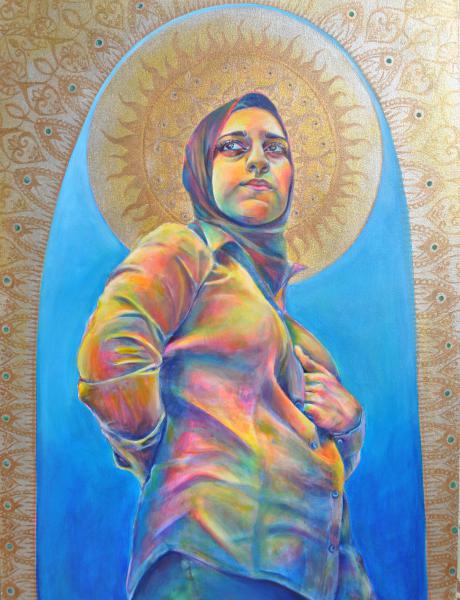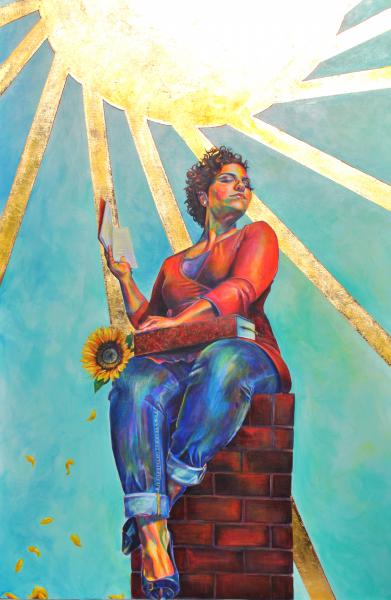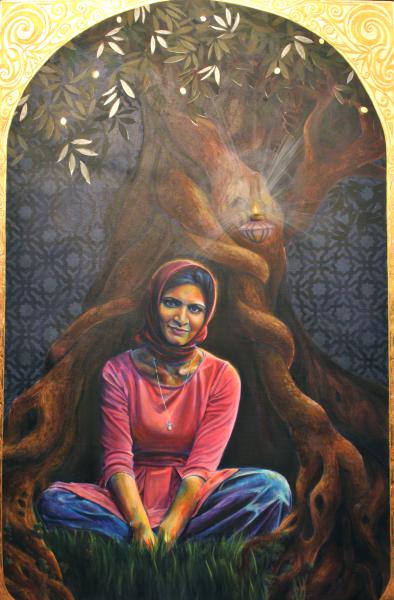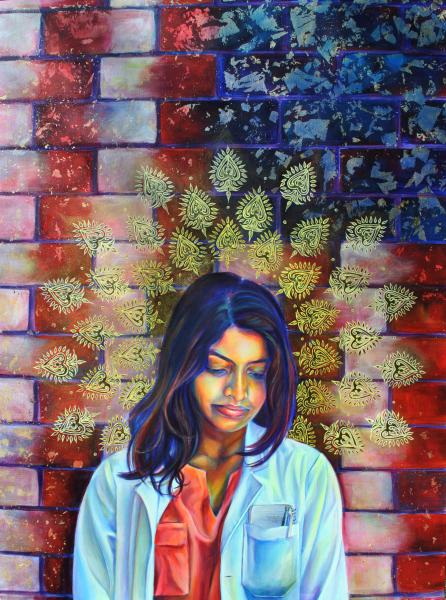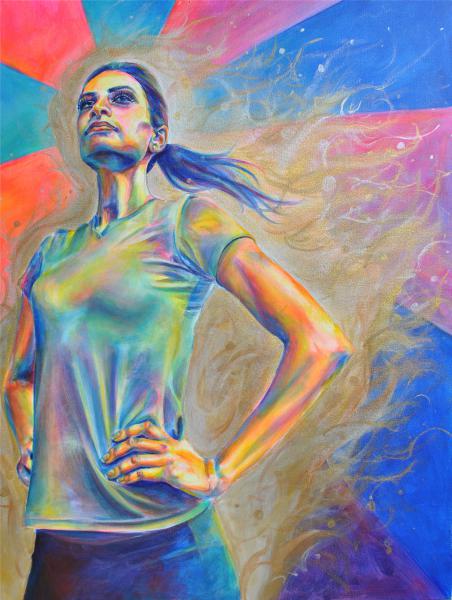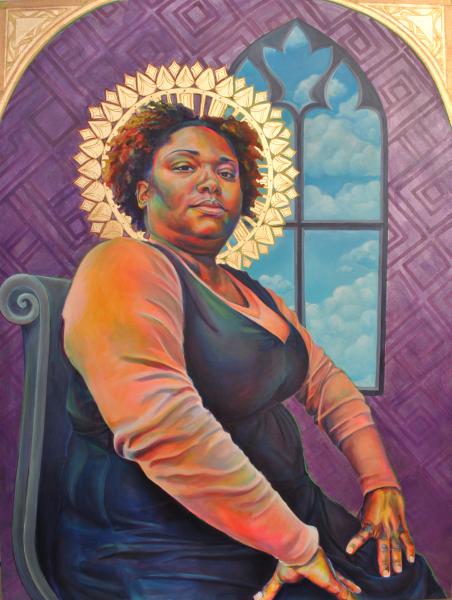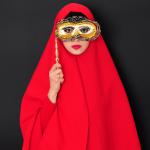Using religious imagery and iconic poses, artist Saba Chaudhry Barnard depicts the individual strength and collective diversity of seven American Muslim women.
"...in a picture I want to say something comforting as music is comforting. I want to paint men and women with that something of the eternal which the halo used to symbolize, and which we seek to confer by the actual radiance and vibration of our colourings." --Vincent Van Gogh
An-Noor is a series of portraits of American Muslim women. The portraits demonstrate the diversity that exists amongst American Muslimahs, yet the paintings are not specifically about Islam. These humanist portraits are inspired by all sorts of religious imagery--be it ancient Egyptian or Hindu gods and goddesses, or Byzantine representations of Christian figures. They incorporate a strong feminist element --a feminism that is inclusive and recognizes that female strength comes in many forms. The series’ title, An-Noor, means “the light” in Arabic. The title refers to the fact that I am not just painting these women’s features, but attempting to illustrate their internal light and beauty. My subjects are posed in the manner of historical icons such as Norman Rockwell’s "Rosie the Riveter," Giotto’s "Madonna Enthroned," the Queen of Swords from Tarot, and even Superman and Napoleon. One painting's imagery is directly derived from Ayat An-Noor. To represent their inner light, the women are crowned by halos; they are ablaze with fire; they are surrounded by gold. Overall, we see an overlapping and coexistence of forms and traditions from the East and the West, an image that reaches back through visual history, religious traditions and imagery. This series is a celebration of women. I aim to create timeless, iconic images of women that help expand the viewer’s visual vocabulary and understanding of Muslims beyond the one-dimensional depictions that are pervasive in art and media. I hope that when people view the series, they recognize the light that surrounds the figures as the same light that is burning within themselves because really it’s not about defining Muslim women, or anyone, but undefining them. It’s about undefining ourselves and connecting to that universal something that exists within all of us, that “something of the eternal.”
- Log in to post comments

